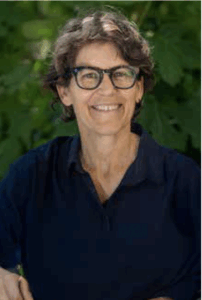Centennial Gala 2025: Rabbi Rachel Timoner, Bridge Builders Award

By David Gil de Rubio | dgilderubio@mec.cuny.edu
Partnerships are only as strong as the base they are built upon. When it comes to the relationship between Antioch Baptist Church and Congregation Beth Elohim, those bonds have been forged in the waters of social justice, a concept well shaped by the work of the late Medgar Wiley Evers.
And in the year of the 100th anniversary of his birth, Congregation Beth Elohim’s Rabbi Rachel Timoner will be sharing the Bridge Builders Award with Antioch Baptist Church’s Pastor Robert Waterman at the Medgar Wiley Evers Centennial Celebration being held on Thursday, October 23.
When you ask Timoner about what it means to be receiving this honor, the lifelong social justice activist is both humbled and thoughtful.
“I was just coincidentally watching the documentary Eyes on the Prize and remembering Medgar Evers, the crime of his murder and his extraordinary leadership,” she said. “To be associated in any way with his life and legacy is just a profound honor. I feel myself to be utterly unqualified for such an honor, but grateful.”
The Timoner-Waterman relationship dates back nearly a decade when the latter invited the former to attend his annual AACEO (African American Clergy & Elected Officials) breakfast. It was a moment that proved seminal for Timoner, who wished to continue the dialogue as well as look to future collaborations.
“Around 2018 or 2019, there had been a series of attacks on Orthodox Jews in the streets and Pastor Waterman invited me to that breakfast to speak about anti-Semitism,” Timoner recalled.
“That was my introduction to him and to Antioch Baptist Church. I reached out to him shortly afterwards to find out what we could do together. I definitely wanted to do something together. From there, we started imagining what we might do. I don’t think we really conceived of a project of the scale we ended up taking on, but we just knew we wanted to partner.”
That collaboration went on to be the basis for the 2024 documentary All God’s Children, a film directed and produced by Timoner’s sister Ondi (who also helmed the award-winning documentaries Dig! and Last Flight Home).
Shot over a seven-year span, the film highlights the triumphs and challenges of bridging the differences between two distinct communities. And while the rabbi admits how difficult it could be, she is quick to point out the upshot of two groups coming together and understanding one another’s perspectives.
“Our partnership has been complicated and hard sometimes,” Timoner explained. “But that’s what you have to do if you’re going to be in a partnership. It doesn’t mean you talk about the things you agree about. You also have to talk about the things you don’t agree about and things that are uncomfortable because there are differences.
“You might even have strongly held beliefs that conflict with each other. It’s just important to be able to go there and not avoid that. I want to live in a city where we can call upon each other. Where if we are in need, we can call each other to say that our community is in need or in trouble and be able to ask if you can show up for us. And I want to be in a city where we’re doing that for each other all the time. Where we’re showing up for each other and see each other as sisters and brothers across our differences.”
She added, “And we ought to be doing that without tragedy and before there is a tragedy. It should just be proactive. There are so many moments in our partnership where somebody at Antioch or CBE will say that they know that they know one another, if they see a headline they think, ‘How is that affecting them? That kind of proactive spirit of caring about what happens to each other or seeing through each other’s eyes a little bit is key.”
Timoner’s decision to combine her spiritual and social justice dates back to 2004, when she enrolled in rabbinical school at the age of 34. It’s no surprise the gratitude she has for the relationship she’s been able to develop with Medgar Evers College via Waterman’s introduction.
Given how the school’s dedication to human and civil rights very much aligns with the rabbi’s values, she’s quick to recognize the important role the school plays in the Central Brooklyn community and world at large.
“I think that having a local institution of higher education rooted in the Black Community means all kinds of opportunities for people,” she said.
“It means promoting the value of learning in the community and prioritizing that. I think that sometimes we undervalue or don’t full recognize how much institutions matter. Especially institutions that are about the betterment of everyone in that community end up being an anchor of the community.”